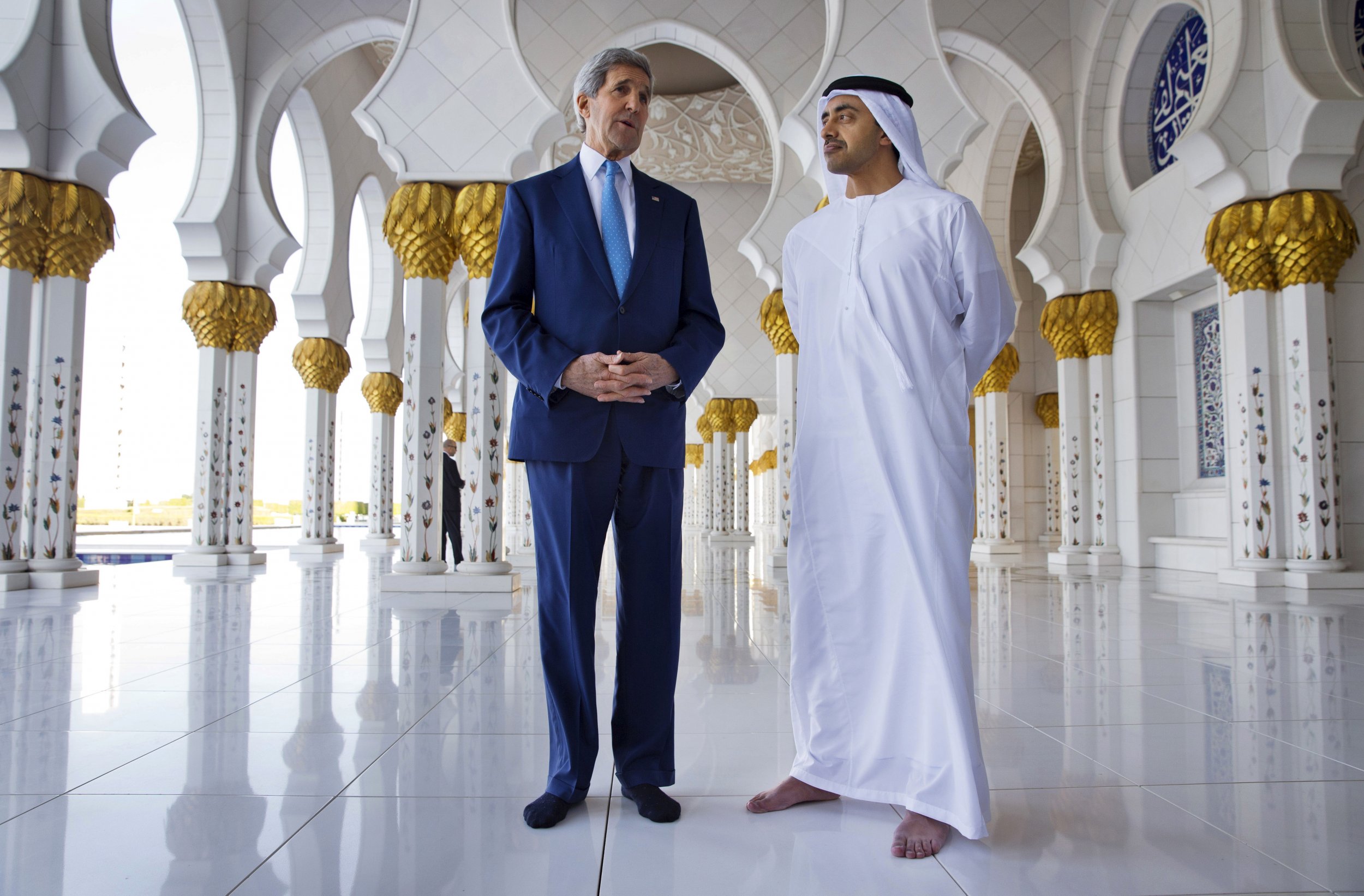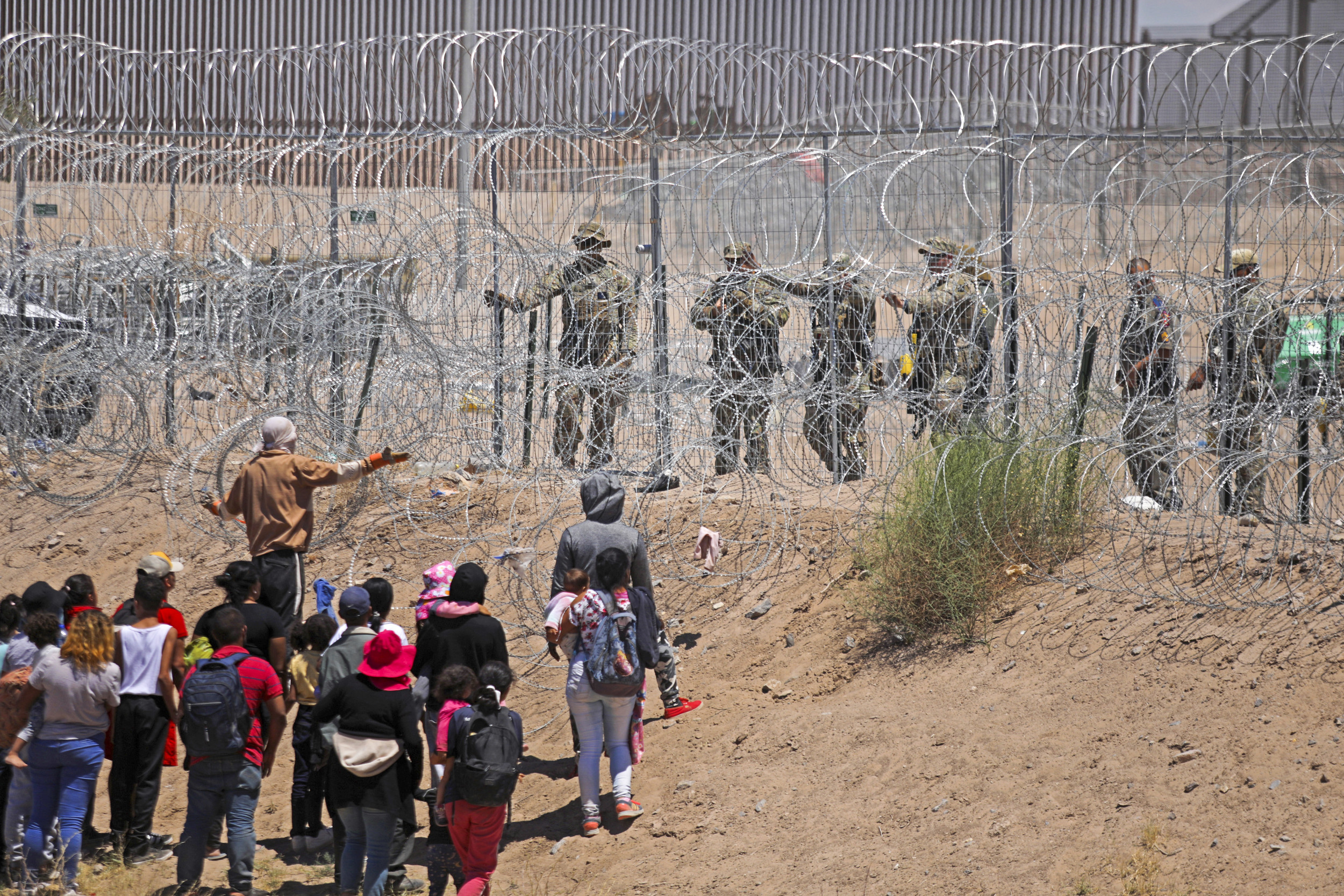
U.S. Secretary of State John Kerry said on Monday it was possible to broaden cooperation with Russia on Syria, but such a move should not deter opposition groups trying to topple Syrian President Bashar al-Assad.
Washington has long resisted working more closely with Russia until Moscow shows that its air strikes in Syria are against Islamic State militants and not aimed at insurgent forces fighting Assad.
Kerry met Abu Dhabi Crown Prince Sheikh Mohammed bin Zayed al-Nahayan on Monday and later held talks with Saudi Foreign Minister Adel al-Jubeir on ways to bring Syrian opposition groups together at a conference in Riyadh next month.
Although he said Washington was not under pressure to work more closely with Moscow, such cooperation would be possible under the right circumstances and could lead to "constructive possibilities".
But he told journalists that it was wrong to see any of Washington's moves as helping keep Assad in power.
"If certain entities perceive that whatever we're doing is going to help Assad to stay, that complicates issues," he said. "So it has to be done in a way that manages the passions ... among people who have been fighting Assad for four years".
Saudi Arabia, Iran, Turkey and the five permanent members of the U.N. Security Council - the United States, Britain, France, Russia and China - met earlier this month in Vienna, where they agreed plans to launch formal talks between Assad's government and its opponents by Jan. 1.
Divisions among Syrian opposition factions, some backed by the West and others by Gulf Arab states, are often cited as one of many obstacles facing diplomatic efforts to end the conflict.
Saudi Arabia and other Sunni Muslim Gulf Arab states have long been major backers of the insurgency against Assad, whom they say must leave power.
Assad has been supported militarily by Iran and Russia, which has carried out eight weeks of air strikes in Syria.
A Kremlin spokesman was quoted by Russia's RIA news agency as saying President Vladimir Putin and Iran's Supreme Leader Ayatollah Ali Khamenei said at a meeting on Monday that outside powers should not impose their political will on Syria.
Kerry said he felt positive that the diplomatic effort was "in full, high gear with a very real plan on the table to be implemented".
VERBAL INVITATION
Khaled Khoja, president of the Syrian National Coalition told a news conference in Istanbul on Monday that his organization had received a "verbal invitation" from Saudi Arabia to take part in the opposition conference next month.
"We hope that we emerge from the conference ... with a result that speeds up a political solution," he said in televised remarks, adding that the group welcomed Riyadh's initiative and would work to make it a success.
He also reiterated the opposition stance that there could be no peaceful solution in Syria without the removal of Assad.
The Syrian conflict began in 2011 with protests against four decades of Assad family rule. About a quarter of a million people have been killed and 11 million - half the total population - have been driven from their homes.
Tens of thousands of Syrian refugees have fled to Europe in the past few months, which has led to increased efforts by Washington and other countries to find a political solution to end the war.
Kerry spoke as Brussels remained locked down with Belgian police making more arrests and continuing the hunt for the prime suspect of the Nov. 13 Paris attacks who was seen crossing over into Belgium.
Referring to the Paris attacks, Kerry said called for accelerated efforts against Islamic State militants.
"We have to cut off the notion of success in Daesh that attracts people elsewhere to want to affiliate with them, and then Daesh gets a cheapie - someone who is already a terrorist does something in their name," he said, using the Arabic acronym for Islamic State.
"The key is destroy Daesh rapidly in Syria and in Iraq, and that will have a profound impact of what happens in these other places," he added.
Uncommon Knowledge
Newsweek is committed to challenging conventional wisdom and finding connections in the search for common ground.
Newsweek is committed to challenging conventional wisdom and finding connections in the search for common ground.





